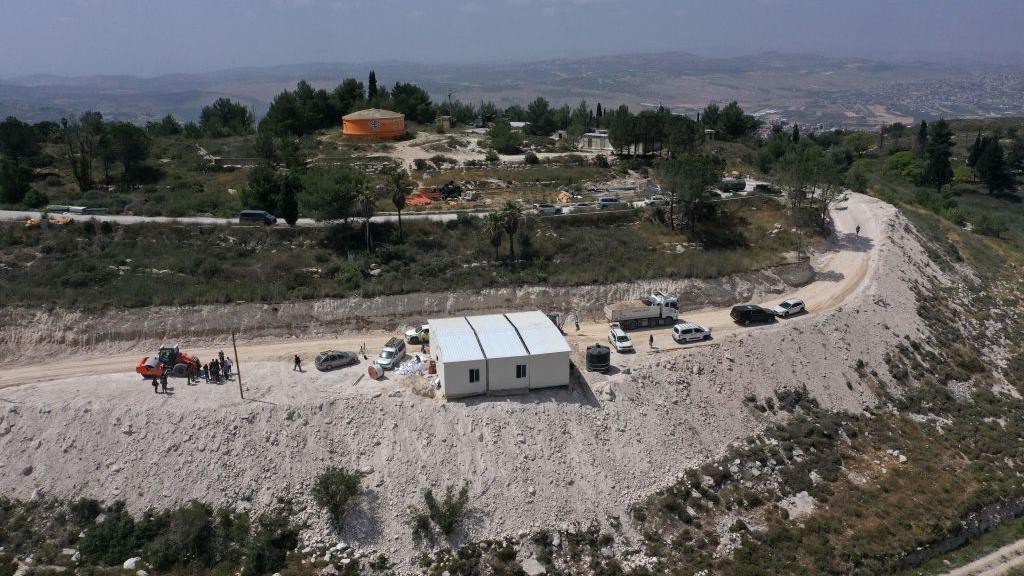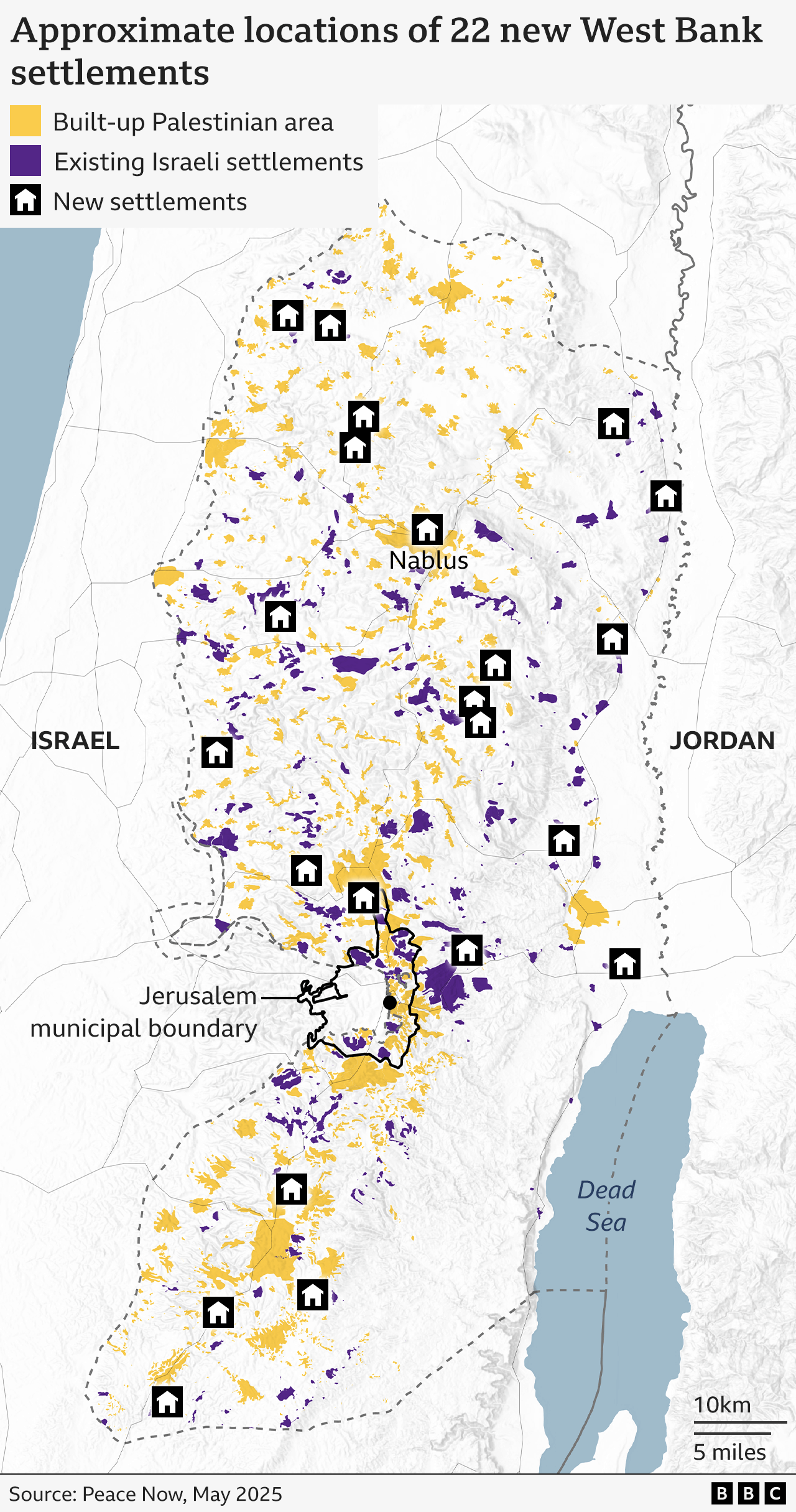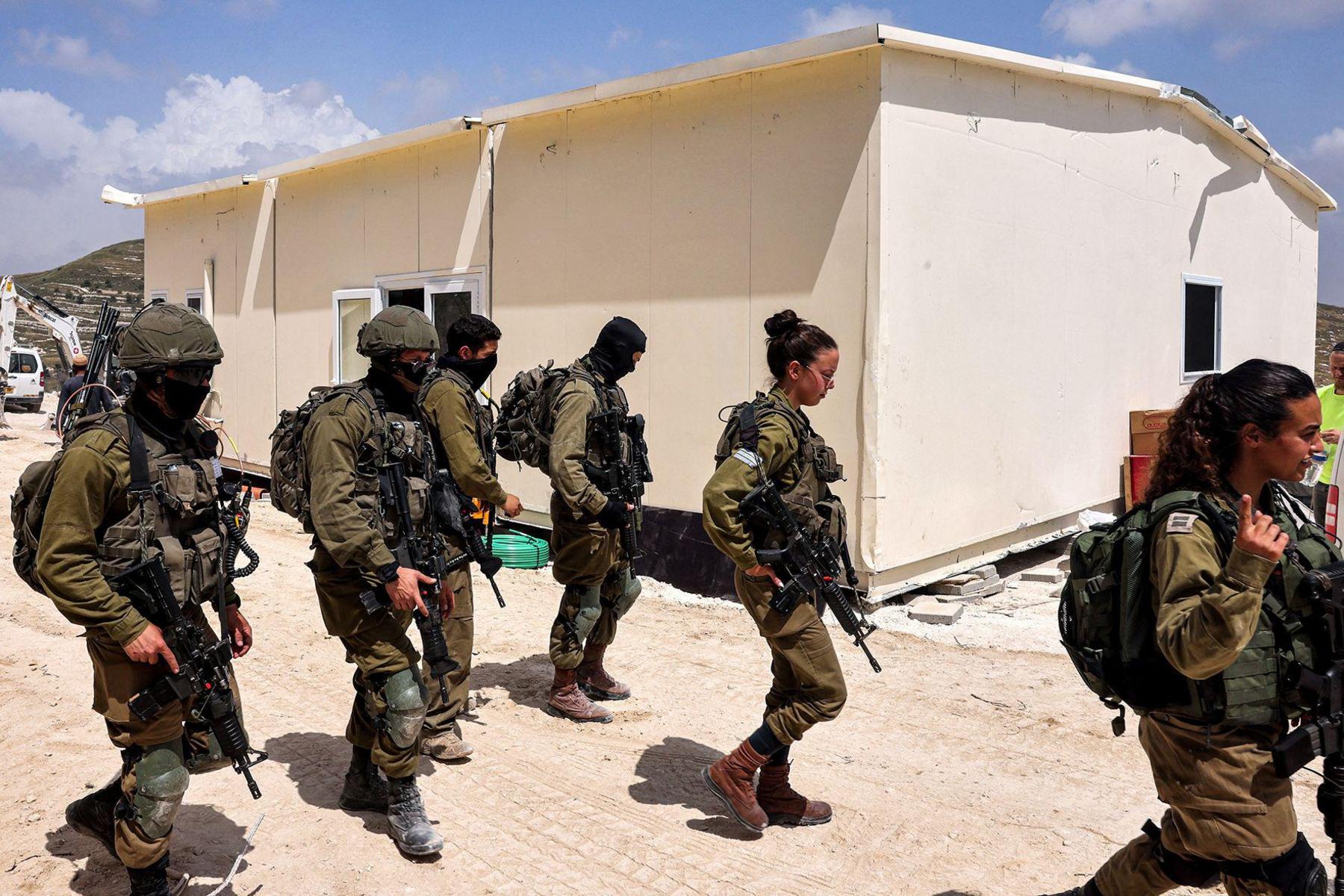Israel announces major expansion of settlements in occupied West Bank

Israeli ministers said the settler outpost at Homesh will be retrospectively legalised (file photo from May 2023)
- Published
Israeli ministers say 22 new Jewish settlements have been approved in the occupied West Bank - the biggest expansion in decades.
Several already exist as outposts, built without government authorisation, but will now be made legal under Israeli law. Others are completely new, according to Defence Minister Israel Katz and Finance Minister Bezalel Smotrich.
Settlements - which are widely seen as illegal under international law, though Israel disputes this - are one of the most contentious issues between Israel and the Palestinians.
Katz said the move "prevents the establishment of a Palestinian state that would endanger Israel", while the Palestinian presidency called it a "dangerous escalation".
The Israeli anti-settlement watchdog Peace Now called it "the most extensive move of its kind" in more than 30 years and warned that it would "dramatically reshape the West Bank and entrench the occupation even further".
Israel has built about 160 settlements housing some 700,000 Jews since it occupied the West Bank and East Jerusalem - land Palestinians want, along with Gaza, for their hoped-for future state - in the 1967 Middle East war. An estimated 3.3 million Palestinians live alongside them.
Successive Israeli governments have allowed settlements to grow. However, expansion has risen sharply since Prime Minister Benjamin Netanyahu returned to power in late 2022 at the head of a right-wing, pro-settler coalition, as well as the start of the Gaza war, triggered by Hamas's 7 October 2023 attack on Israel.
On Thursday, Israel Katz and Bezalel Smotrich - an ultranationalist leader and settler who has control over planning in the West Bank - officially confirmed a decision that is believed to have been taken by the government two weeks ago.
A statement said they had approved 22 new settlements, the "renewal of settlement in northern Samaria [northern West Bank], and reinforcement of the eastern axis of the State of Israel".
It did not include information about the exact location of the new settlements, but maps being circulated suggest they will be across the length and width of the West Bank.
Katz and Smotrich did highlight what they described as the "historic return" to Homesh and Sa-Nur, two settlements deep in the northern West Bank which were evacuated at the same time as Israel withdrew its troops and settlers from Gaza in 2005.
Two years ago, a group of settlers established a Jewish religious school and an unauthorised outpost at Homesh, which Peace Now said would be among 12 made legal under Israeli law, external.
Nine of the settlements would be completely new, according to the watchdog. They include Mount Ebal, just to the south of Homesh and near the city of Nablus, and Beit Horon North, west of Ramallah, where it said construction had already begun in recent days.
The last of the settlements, Nofei Prat, was currently officially considered a "neighbourhood" of another settlement near East Jerusalem, Kfar Adumim, and would now be recognised as independent, Peace Now added.

Katz said the decision was a "strategic move that prevents the establishment of a Palestinian state that would endanger Israel, and serves as a buffer against our enemies."
"This is a Zionist, security, and national response - and a clear decision on the future of the country," he added.
Smotrich called it a "once-in-a-generation decision" and declared: "Next step sovereignty!"
But a spokesperson for Palestinian Authority President Mahmoud Abbas - who governs parts of the West Bank not under full Israeli control - called it a "dangerous escalation" and accused Israel of continuing to drag the region into a "cycle of violence and instability".
"This extremist Israeli government is trying by all means to prevent the establishment of an independent Palestinian state," Nabil Abu Rudeineh told Reuters news agency.
Lior Amihai, director of Peace Now, said: "The Israeli government no longer pretends otherwise: the annexation of the occupied territories and expansion of settlements is its central goal."
Elisha Ben Kimon, an Israeli journalist with the popular Ynet news site who covers the West Bank and settlements, told the BBC's Newshour programme that 70% to 80% of ministers wanted to declare the formal annexation of the West Bank.
"I think that Israel is a few steps from declaring this area as Israeli territory. They believe that this period will never be coming back, this is one opportunity that they don't want to slip from their hands - that's why they're doing this now," Mr Ben Kimon told the BBC's Newshour programme.
Israel effectively annexed East Jerusalem in 1980, in a move not recognised by the vast majority of the international community.

Israeli soldiers accompanied settlers establishing the Homesh outpost in May 2023
This latest step is a blow to renewed efforts to revive momentum on a two-state solution to the decades-old Israel-Palestinian conflict - the internationally approved formula for peace that would see the creation of an independent Palestinian state alongside Israel - with a French-Saudi summit planned at the UN's headquarters in New York next month.
Jordan's foreign ministry condemned what it called a "flagrant violation of international law" that "undermines prospects for peace by entrenching the occupation".
UK Foreign Office Minister Hamish Falconer said the move was "a deliberate obstacle to Palestinian statehood".
Since taking office, the current Israeli government has decided to establish a total of 49 new settlements and begun the legalisation process for seven unauthorised outposts which will be recognised as "neighbourhoods" of existing settlements, according to Peace Now.
Last year, the UN's top court issued an advisory opinion that said "Israel's continued presence in the Occupied Palestinian Territory is unlawful". The International Court of Justice (ICJ) also said Israeli settlements "have been established and are being maintained in violation of international law", and that Israel should "evacuate all settlers".
Netanyahu said at the time that the court had made a "decision of lies" and insisted that "the Jewish people are not occupiers in their own land".